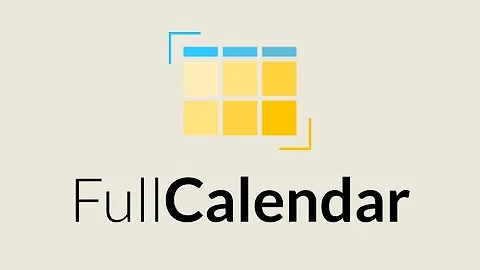How to do Events in Ruby?
Solution 1
I tried writing a GUI library in Ruby with a little C and primarily Ruby. It ended up being so slow I gave up and never released it. But I wrote an event system for it that I tried to make easier than C#'s. I rewrote it a couple times to make it easier to use. I hope it is somewhat helpful.
class EventHandlerArray < Array
def add_handler(code=nil, &block)
if(code)
push(code)
else
push(block)
end
end
def add
raise "error"
end
def remove_handler(code)
delete(code)
end
def fire(e)
reverse_each { |handler| handler.call(e) }
end
end
# with this, you can do:
# event.add_handler
# event.remove_handler
# event.fire (usually never used)
# fire_event
# when_event
# You just need to call the events method and call super to initialize the events:
# class MyControl
# events :mouse_down, :mouse_up,
# :mouse_enter, :mouse_leave
# def initialize
# super
# end
# def when_mouse_up(e)
# # do something
# end
# end
# control = MyControl.new
# control.mouse_down.add_handler {
# puts "Mouse down"
# }
# As you can see, you can redefine when_event in a class to handle the event.
# The handlers are called first, and then the when_event method if a handler didn't
# set e.handled to true. If you need when_event to be called before the handlers,
# override fire_event and call when_event before event.fire. This is what painting
# does, for handlers should paint after the control.
# class SubControl < MyControl
# def when_mouse_down(e)
# super
# # do something
# end
# end
def events(*symbols)
# NOTE: Module#method_added
# create a module and 'include' it
modName = name+"Events"
initStr = Array.new
readerStr = Array.new
methodsStr = Array.new
symbols.each { |sym|
name = sym.to_s
initStr << %Q{
@#{name} = EventHandlerArray.new
}
readerStr << ":#{name}"
methodsStr << %Q{
def fire_#{name}(e)
@#{name}.fire(e)
when_#{name}(e) if(!e.handled?)
end
def when_#{name}(e)
end
}
}
eval %Q{
module #{modName}
def initialize(*args)
begin
super(*args)
rescue NoMethodError; end
#{initStr.join}
end
#{"attr_reader "+readerStr.join(', ')}
#{methodsStr.join}
end
include #{modName}
}
end
class Event
attr_writer :handled
def initialize(sender)
@sender = @sender
@handled = false
end
def handled?; @handled; end
end
Solution 2
The question has already been answered, but there's an observer built right into the standard library if you want to give that a look. I've used it in the past for a small game project, and it works very well.
Solution 3
Extremely simple Ruby listener. This is not exactly a replacement for .NET events, but this one is an extremely simple example of a very simple listener.
module Listenable
def listeners() @listeners ||= [] end
def add_listener(listener)
listeners << listener
end
def remove_listener(listener)
listeners.delete listener
end
def notify_listeners(event_name, *args)
listeners.each do |listener|
if listener.respond_to? event_name
listener.__send__ event_name, *args
end
end
end
end
To use:
class CowListenable
include Listenable
def speak
notify_listeners :spoken, 'moooo!'
end
end
class CowListener
def initialize(cow_listenable)
cow_listenable.add_listener self
end
def spoken(message)
puts "The cow said '#{message}'"
end
end
cow_listenable = CowListenable.new
CowListener.new(cow_listenable)
cow_listenable.speak
Output:
The cow said 'moooo!'
Solution 4
Disclosure: I am the maintainer of the event_aggregator gem
Depending on how you want to approach the problem you could potentially use an event aggregator. This way you can publish messages of a certain type and then have your objects listen to the types you want them to receive. This can in certain cases be better than normal events because you get a very loose coupling between your objects. The event producer and listener does not need to share a reference to the other.
There is a gem that helps you with this called event_aggregator. With it you can do the following:
#!/usr/bin/ruby
require "rubygems"
require "event_aggregator"
class Foo
include EventAggregator::Listener
def initialize()
message_type_register( "MessageType1", lambda{|data| puts data } )
message_type_register( "MessageType2", method(:handle_message) )
end
def handle_message(data)
puts data
end
def foo_unregister(*args)
message_type_unregister(*args)
end
end
class Bar
def cause_event
EventAggregator::Message.new("MessageType1", ["Some Stuff",2,3]).publish
end
def cause_another_event
EventAggregator::Message.new("MessageType2", ["Some More Stuff",2,3]).publish
end
end
f = Foo.new
b = Bar.new
b.cause_event
b.cause_another_event
# => Some Stuff
2
3
# => Some More Stuff
2
3
Be aware that it is async by default, so if you execute just this script the script might exit before the events are passed. To disable async behaviour use:
EventAggregator::Message.new("MessageType1", ["Some Stuff",2,3], false).publish
#The third parameter indicates async
Hopefully this can be helpful in your case
Related videos on Youtube
Comments
-
Ash about 2 years
I come from a C# background, and have just started programming in Ruby. The thing is, that I need to know how I can raise events in my classes so that various observers can be triggered when things need to happen.
The problem is the books I have on Ruby don't even mention events, let alone provide examples. Is anyone able to help me?
-
Boris B. over 10 yearsThis answer feels the most ruby-ish. It relies on dynamic nature of the language rather than emulating a strongly-typed one, it's simple to use and understand, and it supports multicast.







